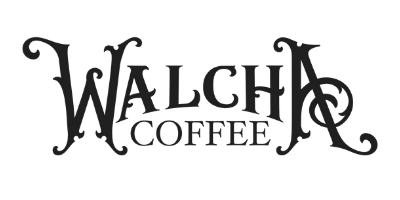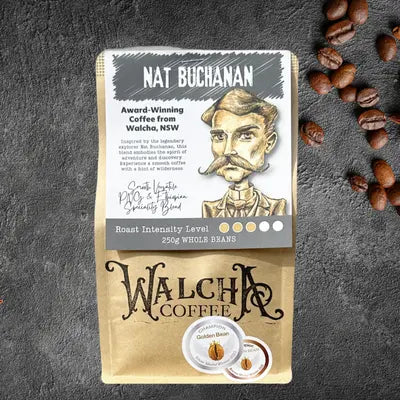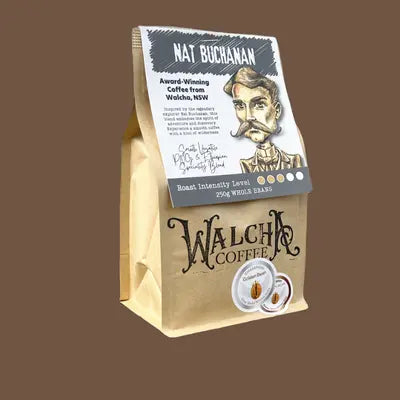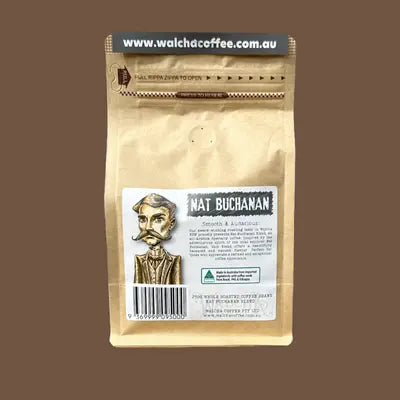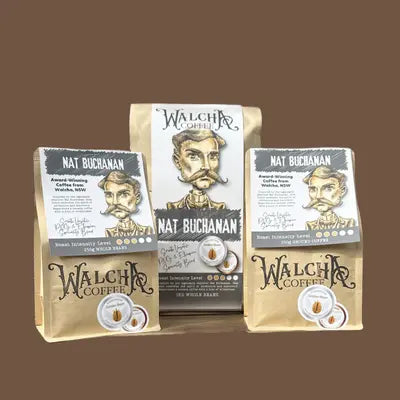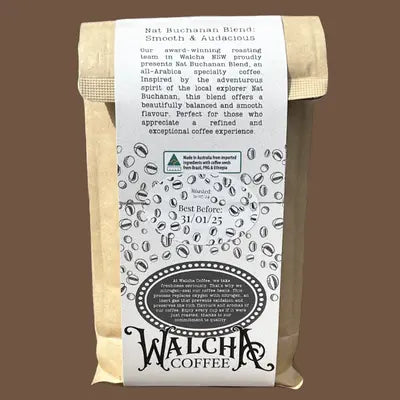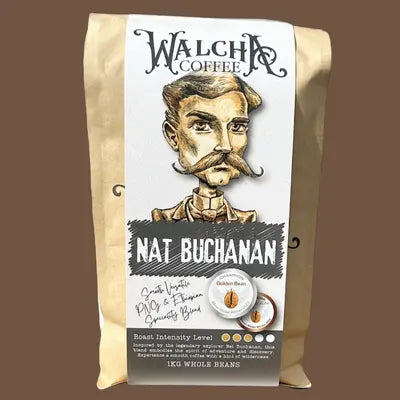Walcha Coffee
Nat Buchanan's Blend
Nat Buchanan's Blend
Couldn't load pickup availability
Nat Buchanan's Blend
Discover the Nat Buchanan Blend, one of Walcha Coffee’s most celebrated specialty coffees. Inspired by the legendary Australian explorer Nat Buchanan, this bold yet refined blend offers a smooth balance of sweet stonefruit flavours, bright citrus acidity, and a clean finish.
Crafted from carefully sourced origins — PNG Kongo (Typica & Bourbon, washed, 1,500 masl), Brazil Catuai (natural, 900 masl), and Ethiopia Yirgacheffe Heirloom (washed, 1,700–2,200 masl) — this blend highlights the best of specialty coffee. Its versatility makes it perfect for both espresso brewing and pour-over methods, delivering a consistently sophisticated cup.
Whether you’re a home barista or running a café, the Nat Buchanan Blend is a customer favourite for its balance, sweetness, and complexity.
Available in 250g and 1kg whole beans, roasted fresh in Walcha, NSW.
More Information
More Information
Nat Buchanan’s Blend features the following super high quality beans:
PNG – Korofeigu Organic
The Korofeigu Farmer’s Cooperative Society is located in the Bena Bena Valley of the Eastern Highlands, between Goroka to the west and Henganofi to the east. The co-op—which may be a cooperative in name and practice, though not as an officially registered entity, which is common in the region—is comprised of 97 producers who farm an area of 112 hectares. The mountainous and moist cultivation area has loamy soil and a variety of native shade trees. Annual production is around 1.6 containers. In early 1945, as the war in New Guinea was subsiding, four village plots in the Korofeigu area were identified by the administration for coffee planting by the villages. Thirteen teenage villagers from Korofeigu and other surrounding areas were selected to be sent to a newly created school for training in coffee production. For the next 12 months, government officials moved around the Eastern Highlands selecting village plots and encouraging them to plant seedlings while continuing to train the youth of these areas. The initial reaction of the indigenous population was indifference; in a bountiful valley that could produce so much, it was thought that a crop that would take three years to harvest a return was a waste of time. Although some plots were neglected, none were removed, allowing the beginning of a coffee-farming culture in this area. From these small plantings in and around Korofeigu, coffee has become the most important commodity. Today, it is Papua New Guinea’s most important agricultural crop, directly or indirectly providing the major source of income for a third of the country’s population. A mix of the Arusha and Bourbon varieties are shade-grown in the loamy soil of this region at an altitude ranging between 1400-1850 meter above sea level. Harvest time is from April to September. Wet processing is done at farm-site using clean water from nearby springs. Cherries are handpicked and pulped the same day before being fermented in small vats/buckets and fully washed after 36-48hrs. Drying of parchment is often times on drying beds constructed form simple bush materials and this may take up to a week. Farmers bring their dried parchment to the collection point where it changes ownership at premium price levels for the certified Organic parchment. Further processing of the parchment is done at NGHCE’s own mill in Goroka. Our supplier, New Guinea Highlands Coffee Exports (NGHCE), has had business relationship with farmers in the Korofeigu area since the company was created in 1992, but members of the company have been trading coffee within the area since the 1960s. In recent years, NGHCE began a program to assist farmers in obtaining their Organic certification. This coffee is the product of this initiative, which also provides extensive work on HIV/AIDS prevention, financial management, gender equality awareness, coffee husbandry and certification standards and procedures.
Ethiopian – Mamo Kacha
Ethiopia is widely regarded as the birthplace of coffee, and Yirgacheffe—in the bottom half of the country, in the Gedeo Zone of the Southern Nations, Nationalities and Peoples’ Region (SNNPR)—is arguably its most famous growing region. As James Hoffmans explains in The World Atlas of Coffee: “So many of the great washed coffees from Yirgacheffe are explosively aromatic, full of citrus and floral notes and have a light and elegant body, so this is undeniably one of the greatest and most interesting regions for growing coffee.” Ethiopia is a landlocked country so coffee is first trucked to Djibouti (850kms from Addis) before it can be shipped around the world. Harvesting time is usually between October and January – depending on the growing altitude and prevailing climatic condition at the time. Often, unpredicted weather patterns (associated with the growing impact of climate change) pose challenges during harvesting and drying periods (like untimely excessive rains). The green coffee making up this lot was collected from various smallholder farmers who live around the Kochere district. After picking ripe red cherries, they supply them to the nearby washing station which operates in the area. For the wet processing method, coffee is brought to the washing stations by the surrounding member farmers. For those located farther out, the Mamo Kacha team collects the harvested cherries. In both cases, quality is inspected to ensure only red ripe cherries are accepted, and the under-ripe ones rejected. The cherries are then pulped during the same day of harvesting, otherwise overfermentation will occur if kept overnight. The pulp is then removed and soaked in fermentation tanks from 36-72 hours (depending on the temperature). Afterwards the parchment is taken to drying beds till properly dried.
Brazil – Oberon
Brazil Oberon is a 100 percent Cerrado blend that consistently captures the qualities this region is celebrated for: a creamy body, sweet chocolate and citric notes, and a light acidity. It’s a profile that has been carefully established over time, thanks to our close relationship with Stockler, the importer’s sister export company in Brazil. The Cerrado region, in southwestern Minas Gerais, is known for its homogeneous climate and altitude. The average temperature is around 68°F, an average rainfall of 1,600 mm falls reliably from December to March, and the altitude lightly rolls from 900 to 1,250 meters above sea level. Such consistency is a big help to producers—who can focus on quality and production, instead of the weather. “The main thing in Cerrado is the uniformity,” says Alexandre Ferraz, a Q Grader and Senior Coffee Trader at Stockler. “The weather conditions allow for a lot of control, and the farmers in Cerrado are very professional and very high tech. Their use of harvesting machines, for example, allows them to better control the exact moment to harvest, which also contributes to uniformity.” Cerrado is home to approximately 140,000 hectares of dedicated coffee production and approximately 3,600 coffee producers, the majority of whom are organised into large cooperatives. Stockler enjoys working with the same farmers, and has strong relationships across the region, but the contributors to Oberon change each year, as the focus in on an absolutely consistent cup profile. Coffee farms in Cerrado vary in size from roughly 100 hectares to more than 3,000 hectares. And producers tend to be very open to feedback, says Alexandre, if they believe it will improve their cup quality. “We encourage the producers to trace their best coffees to particular lots, so we can trace not only to the farm but to the specific location on the farm.”
Bean Specifications
Bean Specifications
PNG - Korofeigu Organic
Q Score: 83
Grade: B16+
Region: Eastern Highlands
Altitude: 1,450–1,800 masl
Process: Washed
Variety: Mixed
Ethiopian – Mamo Kacha
Q Score: 87
Grade: 1
Region: Yirgacheffe
Altitude: 1,950–2,200 masl
Process: Washed
Variety: Heirloom
Brazil – Oberon
Q Score: 82.75
Grade: SC17/18
Region: Cerrado
Altitude: 900–1,250 masl
Process: Mixed
Variety: Natural
Recipe
Recipe
As an espresso, we tend to use around a 2 to 1 ratio. In our 20g basket, we are pulling 35g to err on the side of a ristretto, but letting the shot go further to the full 2 (40g) for milk based drinks. In a pour over, we use 66g/L ground at #9 on a Ek43. This is somewhat fine grind for a pour-over. Our pre-grind for supermarkets is #5 on the EK43 to give you a point of reference.
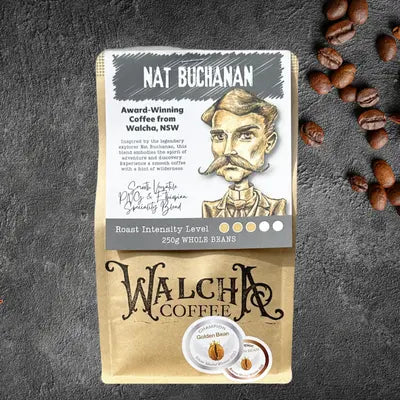
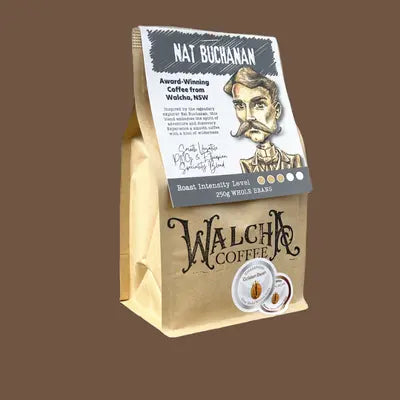
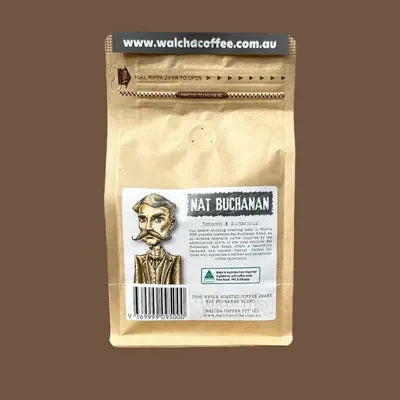
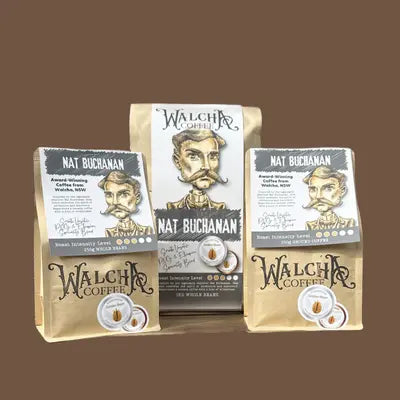
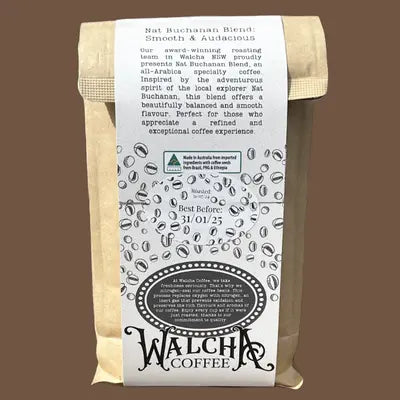
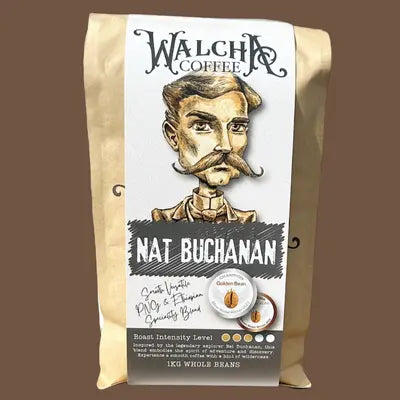
-
Walcha Roasted Coffee
Enhancing and inspiring customer's coffee experience one handcrafted coffee at a time.
-
Contact
Walcha, NSW
cameron@WalchaCoffee.com.au
+61 488 990 777Walcha, NSW
cameron@WalchaCoffee.com.au
+61 488 990 777
